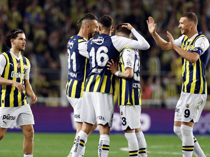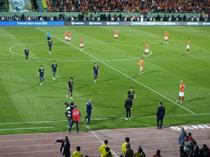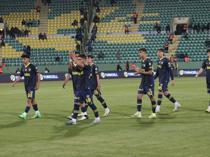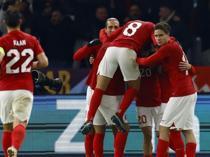Expect worse in Turkey’s sports-related violence, says journalist
Barçın Yinanç - barcin.yinanc@hdn.com.tr
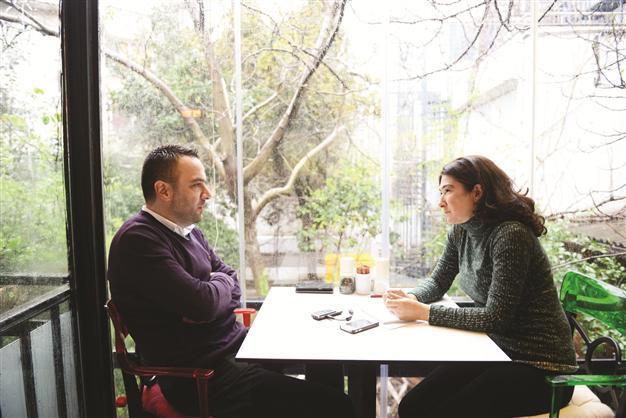 The recent armed attack on the Fenerbahçe team bus should not be surprising, considering the worrying atmosphere of escalating tension around sport in Turkey, a prominent sports journalist has told the Hürriyet Daily News in an exclusive interview.
The recent armed attack on the Fenerbahçe team bus should not be surprising, considering the worrying atmosphere of escalating tension around sport in Turkey, a prominent sports journalist has told the Hürriyet Daily News in an exclusive interview. “We have come to a point where, as a nation as a whole, we should feel ashamed,” Uğur Meleke said regarding the situation after the attack.
“The officials who rule the country and who oversee football are not really aware of what we are facing ... We just don’t know how to do sports. We simply cannot manage it. Tremendous hooliganism exists, which is independent of any club,” Meleke added.
Where you surprised when you heard about the incident. Did you say, ‘I knew this was coming’? Or you did not expect things to go so far.
I expected it to happen. In fact, I expected worse to happen, looking at developments over the course of the last five years. Obviously there has been an accumulation over a quarter of a century, but in the past five years violence has escalated. A referee was hit in his head in one game, in another one a referee was just saved from being lynched. Another fan was badly beaten and a coach was stabbed on the pitch. So, the disaster was saying “I am coming.”
But this latest incident is not just an ordinary example of violence. It can’t be explained away as “fanaticism” or “sports.” It is clearly a terrorism issue. I say that this is Turkey’s Heysel, when in 1985 a group of Liverpool fans breached a fence to approach Juventus’ fans. Thirty-eight people were killed, as the escaping fans were pushed against a collapsing wall. In this case there was an attempt to kill 41 people; the difference was that fortunately they were saved.
Perhaps Heysel happened spontaneously due to mob psychology, but here it looks like premeditated, attempted murder. You say this cannot be explained just by fanaticism, but others go even further and say certain circles are trying to send messages on issues about Turkey by targeting Fenerbahçe.
I think we will miss the overall picture if we evaluate the issue in terms of individual clubs - be they Fenerbahçe, Galatasaray or Trabzonspor. Some officials have said, “This cannot be done by Trabzonspor fans.” Does it matter whether it is committed by a Fenerbahçe fan or a Galatasaray fan?
This approach misses the essence of the issue, which was a big disaster. If it was committed by a local from Trabzon, does that mean only locals in Trabzon should feel sorry about it? If it was committed by someone from Ankara, does that mean only those from Ankara should feel sorry about it? The real issue is that we have come to a point where, as a nation as a whole, we should feel ashamed.
The fact that only games in the Turkish Super League were suspended, and not matches in any other league, shows that the officials who rule the country and who oversee football are not really aware of what we are facing. The issue is this: We just don’t know how to do sports. We simply cannot manage it. Tremendous hooliganism exists, which is independent of any club.
After the Heysel tragedy, the U.K. government suspended all games across the country. The then Prime Minister Margaret Thatcher decided not to allow any British teams to take part in European competitions. This is because it was something that the British as a nation were ashamed of; it was not an issue only for the fans of Liverpool to be ashamed of. Similarly, in 2007 all matches were suspended in Italy after a police officer was killed. The Italians suspended the matches, renovated their stadiums, renovated their security procedures, and updated their laws. This is what we need to do.
Some argue that similar incidents take place abroad too, but you say that we stand apart from the rest of the world in terms of violence in football.
Yes, this is the case in terms of what happens after violent incidents. In Europe the necessary measures are taken so that such violence and traumas are not repeated.
It is apparent that the law on violence in Turkey is insufficient and needs to be reviewed. We have not come to this point all of a sudden. Last year, a fan broke onto the field and kicked a Beşiktaş player. The only punishment that the fan got was a ban from going to games for one year. If he had done the same in the street, he would perhaps have been sent to jail.
As you said, we have not come to this point all of a sudden. So how have we ended up here?
In Eastern countries like ours there is a human dimension, a human quality that is at the core of the fanaticism. You don’t have a lot of scientific people, you don’t train mathematicians, you don’t have artists, you don’t have musicians. We don’t paint, we don’t play instruments. There are too many people around who have nothing to differentiate themselves from others. People become a Fenerbahçe fan, or a Beşiktaş fan, because there is nothing else they can identify with in society. As individuals, we don’t mean much to society. As a result, fanaticism is a little more widespread in Eastern countries like us. So raising generations with particular qualities is not something that can happen quickly from today to tomorrow.
Don’t you think part of it is also related to the fact that football has become an industry, and also somehow it is also related to the broader polarization in Turkey?
Indeed. Everything is made sacred: The party is sacred, the brotherhood is sacred, the organization is sacred, the jersey is sacred. So the end justifies the means. One can sacrifice everything for victory: Ethics, virtue, friendship. You can even commit a crime for victory.
How do you view the reaction in society after this incident?
I think we did not really know how to react. So we did not show the right reaction.
The prevailing view is that the Turkish Football Federation (TFF) completely mismanaged the crisis.
The TFF suspended only the Super League, and for only one week. Actually a game was played four hours after the decision. About this, they said, “Let this game be played and then the decision will go into effect.” In that case, what’s the purpose of suspending the league?
If you ask me, the TFF doesn’t even know why it took the decision. It said it was suspending the league as a reaction to those who committed the attack. This sounds meaningless to me. It should have said: “We are faced with a big act of terror. We are not in a country where we can play football at the moment. We are not in a position to go ahead with games, to talk about games. As a federation, as clubs, as coaches, as players, as referees, all of us need to think about it. We are just playing football, but this could have cost the lives of 41 people. What should we do about it? What measures must we take? We need to think about this, and that is why we have suspended all matches.” That is what the TFF should have said.
If you were to make a list of who to blame, where would you start from?
The officials of the clubs, and the media. In order to be a good coach, or a good player, or a good referee, you have to fulfill a lot of criteria. But what is the criteria to be a club manager? Simply being rich and being fanatical. A similar problem is also valid for the media. The best journalists become political or economic reporters; the mediocre ones become sports reporters.
Some would also blame politics.
No doubt, we can also blame politics.
When you compare it with the rest of the world, where do we stand in terms of the relationship between sports and politics, especially in the recent past?
The relationship between politics and sports is very intensive in our country, compared to the rest of the world. I believe that in the recent past this has become even more intensive. At any rate, we live in a period when political power is very strong in all spheres of life, including sports.
You have talked about the media, but I feel like the clubs and the fans are terrorizing members of the media as well. There is a risk of lynching if you happen to criticize clubs - especially the big clubs. Can we talk about psychological terrorizing pressure on media members?
Yes we can. In Turkey we don’t know the name of the president of Arsenal, even though he has been the president there for decades. However, we know all of Arsenal’s players by their name. In Turkey, the weight of a club’s president is different. As they are so powerful, they end up having this Mafioso attitude.
How do you think this latest incident will affect the image of Turkish football?
Between 1995 and 2005 Turkish football enjoyed a good international image. Then in 2005 we had an incident with Switzerland, when Swiss players were attacked in Turkey. From then on we entered into a period of misbehavior. I see the 1995-2005 period as marking the rise of Turkish football, while the 2005-2015 period marks its stagnation.
What makes you expect worse to come?
I have not heard about any new set of measures. Nobody is talking about reviewing the law, or reviewing instructions. We are going through a bizarre period where crime and criminals - let alone being punished - are venerated. Last year, one player threatened another one with a gun. Not only was he not punished; he was actually invited to play in the national team.
Who is Uğur Meleke?

He started his journalism career at daily Milliyet. He worked as a news editor at Milliyet between 2005 and 2009, and he currently writes columns there.
Over the past decade he has frequently appeared on TV programs on the NTV, CNNTürk, Lig TV, and TRT stations as a sports analyst.
For the past seven years, Meleke has been the producer and presenter of a program on Lig Radio, and he holds a number of journalism awards.








